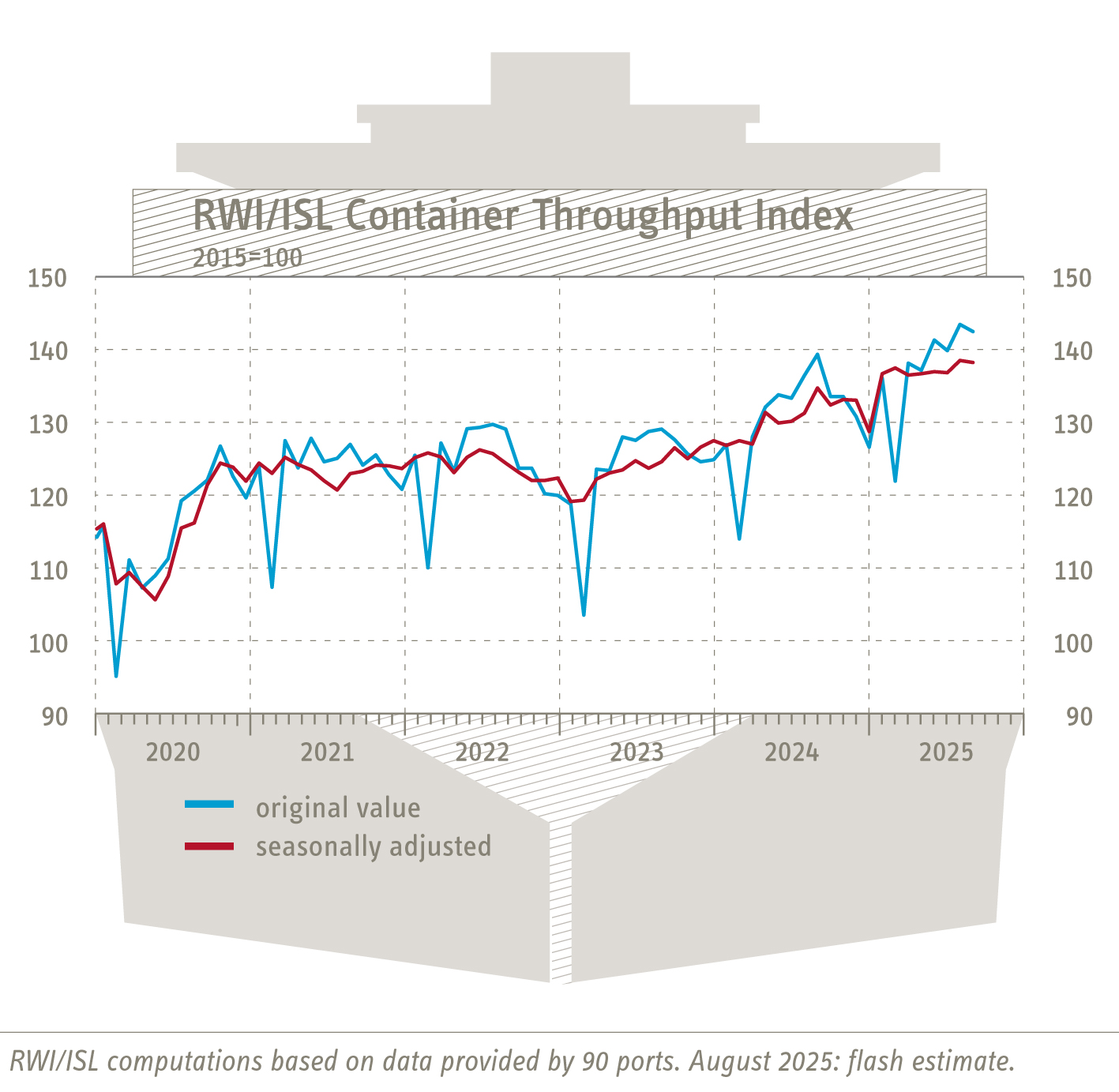RWI/ISL- Container Throughput Index
RWI/ISL Container Throughput Index stagnates: Global trade remains stable despite trade conflicts
30.09.2025
Global container throughput remains stable despite uncertainty caused by US customs policy. This is shown by the container throughput index published by the RWI – Leibniz Institute for Economic Research and the Institute of Shipping Economics and Logistics (ISL). According to the latest flash estimate in August, the seasonally adjusted index stands at 138.3 points, largely unchanged from the previous month. Container handling in Chinese ports has recovered slightly after the weakness of recent months. Europe's ports, on the other hand, present a mixed picture: the trend is upwards. In August, however, container handling fell significantly.
The most important facts in brief:
- The container throughput index of the RWI – Leibniz Institute for Economic Research and the Institute of Shipping Economics and Logistics (ISL) remained virtually unchanged in August at 138.3 points, compared with 138.5 points (revised) in the previous month.
- The Nordrange Index, which provides indications of economic development in the northern eurozone and Germany, fell sharply from 119.7 (revised) to 117.3 points in August. However, this figure is quite volatile. The trend component of the index rose slightly in August compared with the previous month.
- Container throughput in Chinese ports rose slightly to 151.5 points, compared with 150.7 points (revised) in the previous month.
- The RWI/ISL Container Throughput Index for September 2025 will be published on 31 October 2025.
Torsten Schmidt
About the RWI/ISL Container Throughput Index:
The index is based on data on container throughput in 90 international ports, which account for around 64 per cent of global container throughput, collected on an ongoing basis as part of the ISL Monthly Container Port Monitor. The current flash estimate for the Container Throughput Index is based on data from around 82 per cent of the throughput shown in the index. As most international trade is handled by sea, container throughput allows reliable conclusions to be drawn about global trade. As many ports report on their activities just two weeks after the end of a month, the RWI/ISL Container Throughput Index is a reliable early indicator of the development of international trade in processed goods and therefore also of global economic activity. The Container Throughput Index is part of the statistics on foreign trade in the „Dashboard Deutschland“ of the Federal Statistical Office. It is also used by many international bodies such as UNCTAD and is included in the ‘Shipping/Port Data’ section of the WTO's Global Trade Data Portal
Data series for individual ports are available in the ISL Monthly Container Port Monitor
Further background information on the RWI/ISL Container Throughput Index can be found at www.rwi-essen.de/containerindex.




